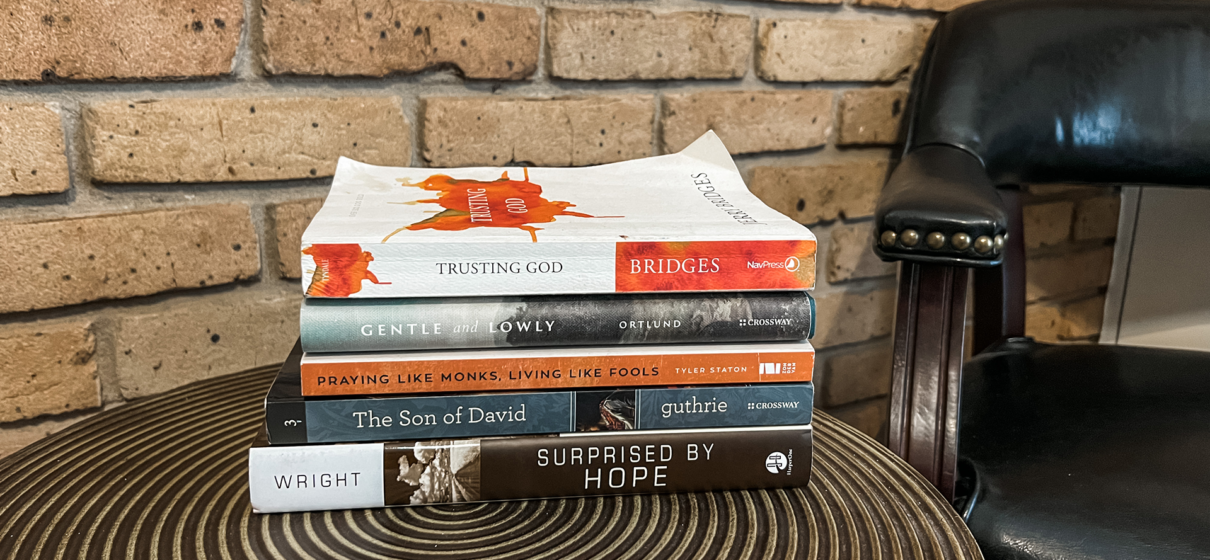We see it recorded throughout the Bible.
It is in the long-suffering of the people of Israel, the wisdom of Ecclesiastes, and the personal reflections of Paul.
It is the yearning voiced in many Psalms and in the cries of the saints in Revelation.
It is part of the fabric of Scripture, and yet, when we encounter it personally, instead of accepting the spiritual heritage we have in common with the people of God throughout history, we often find ourselves frustrated and discouraged.
“It” is our longing for God to bring to ultimate completion his promises to his people.
“It” includes our personal longing for the practical implications of his promises in our lives and our souls, right now.
This is true not only of our desire for material and circumstantial comforts, but of the yearning we have for our own spiritual maturity – our desire to want to know and obey God.
How many times have you asked yourself, Why do I still have these sinful thoughts? Why do I still want to do what I know I should stop doing? When am I going to change?
How are we to respond when we find ourselves being discouraged when our personal patterns of sin repeat themselves?
You would think that king David would have had his spiritual act together.
He had been chosen by God to rule Israel. God spoke to him, protected him, and prospered him.
God lifted David from the smelly obscurity of shepherding sheep and placed him in a palace.
Of all people you would expect David to be able to model thoroughgoing obedience.
But read the story of his life and you see a man who was at times immature, rash, selfish, and even violent.
The prophet Nathan confronted David about a particularly sinful act of selfishness (2 Samuel 11-12). We can learn from David’s response in Psalm 51:
Hide your face from my sins,
and blot out all my iniquities.
10 Create in me a clean heart, O God,
and renew a right spirit within me.
11 Cast me not away from your presence,
and take not your Holy Spirit from me.
Psalm 51:9-11
Here are some questions to consider in light of David’s words in Psalm 51.
When you sin, stumble, fall short – again – do you struggle with guilt? Do you think God is disappointed with you, maybe even angry? Do you fear God is going to punish you?
David did not feel that way. He didn’t hide from God, and he didn’t allow his sin to estrange him from God. Instead, he turned to the gracious character of God.
“Hide your face from my sins, and blot out all my iniquities.”
David wasn’t hoping God would do those things, he was stating what he knew God had already promised to do.
In other words, in the conviction of his sin he acknowledged his need for God’s grace, and he confessed his trust that God is so gracious.
Who are you depending on to do the work of transforming your thoughts and actions?
When you ask yourself, Why do I still have these sinful thoughts? Or, Why do I still want to do what I know I should stop doing?
Are you focused on changing through your own effort and discipline?
David clearly wasn’t.
David asked God to work in him, “Create in me a clean heart, O God.”
There is a powerful and encouraging word in verse 10, renew.
It isn’t that David doesn’t know God or hasn’t wanted to obey God, he has been a faithful man and he asks God to work to renew his heart. David knows that God being restored to the throne of his heart is the basis of a faithful, obedient life.
Do you tend to engage your failure from a physical, material perspective?
David lived in the presence of God and with a continuing sense of the Lord’s Spirit within him. He knew that his worldly failures were the result of the sin that also abided in him. He was engaged in a spiritual struggle.
He asked for mercy, for renewal, and for God’s patience because he knew God’s grace is greater than the brokenness he could not completely escape.
We should be challenged and encouraged by David’s response to his sinfulness.
When we are discouraged by the unholy things we do, like David, we should be overwhelmed by the power of God’s abiding grace.
Before we set about redisciplining ourselves and redoubling our efforts to be good, we should, like David, first choose to believe God and to enthusiastically throw ourselves into the sea of his love.
When we suffer again from our inability to completely avoid succumbing to our sin we should, like David, seek to address the spiritual struggle within us.
God has forgiven us in Christ, already.
God has the power to transform the desires of our hearts.
God is present with us and in us.
In these truths are the roots of sustained obedience and ongoing transformation.
Create in me a clean heart, O God, and renew a right spirit within me.










